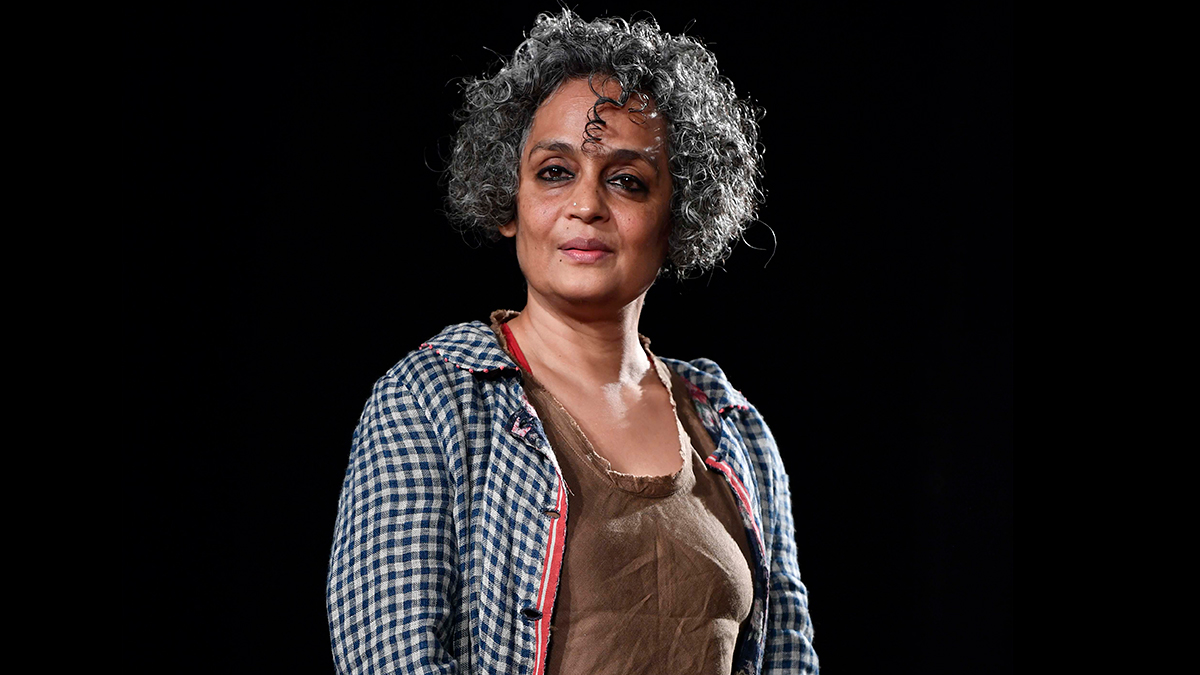Glorifying terrorism? Why J&K govt banned books of Arundhati Roy and A.G. Noorani?
 Ammu’s story: Remember the character Ammu in Arundhati Roy’s Booker-winning novel The God of Small Things? She was fiery, fearless and... fictional. They say she was modelled after Arundhati’s mother, Mary Roy. If so, Ammu’s moving from the world of make-believe to the less exciting one in which we all live. Arundhati is writing a book about her mother—Mother Mary Come To Me. “Perhaps a writer like me deserved a mother like her...,”she said. “Even more than a daughter mourning the passing of her mother, I mourn her as a writer who has lost her most enthralling subject.”The book will be published by Penguin Random House in September 2025. She had earlier spoken about her relationship with her mother being fraught, but then, haven’t we all been there, faced that? Fraught mother-daughter relationships seem as much a law of the universe as gravity, viral cat videos, or potholes on Indian roads | Salil Bera
Ammu’s story: Remember the character Ammu in Arundhati Roy’s Booker-winning novel The God of Small Things? She was fiery, fearless and... fictional. They say she was modelled after Arundhati’s mother, Mary Roy. If so, Ammu’s moving from the world of make-believe to the less exciting one in which we all live. Arundhati is writing a book about her mother—Mother Mary Come To Me. “Perhaps a writer like me deserved a mother like her...,”she said. “Even more than a daughter mourning the passing of her mother, I mourn her as a writer who has lost her most enthralling subject.”The book will be published by Penguin Random House in September 2025. She had earlier spoken about her relationship with her mother being fraught, but then, haven’t we all been there, faced that? Fraught mother-daughter relationships seem as much a law of the universe as gravity, viral cat videos, or potholes on Indian roads | Salil Bera
The Jammu and Kashmir government has banned 25 books, including those written by famous authors like Arundhati Roy and A.G. Noorani, accusing them of promoting a false narrative and glorifying terrorism.
An order issued by the Home Department on August 5—the sixth anniversary of the abrogation of Article 370—declared these books as ‘fortified’ under Section 98 of Bhartiya Nagarik Suraksha Sanhita, which would mean the publishers will no longer be able to distribute or reprint these books again.
"It has come to the notice of the Government that certain literature propagates a false narrative and secessionism in Jammu and Kashmir," said the order.
The books which were banned included Azadi by Booker Prize winner Arundhati Roy, Contested Lands by professor at the London School of Economics Sumantra Bose, The Kashmir Dispute by constitutional expert A.G. Noorani, and Kashmir in Conflict – India, Pakistan and the Unending War by British historian Victoria Schofield.
Al Jihadul fil Islam by Islamic scholar Moulana Moudadi, Independent Kashmir by Australian author Christopher Snedden, and In Search of a Future (The Story of Kasimir) by noted author David Devadas have also been banned.
The government order noted that available evidence based on investigations and credible intelligence "unflinchingly indicates" that a significant driver behind youth participation in violence and terrorism has been the "systematic dissemination of false narratives and secessionist literature by its persistent internal circulation, often disguised as historical or political commentary".
It said this literature has played a critical role in misguiding the youth, glorifying terrorism and inciting violence against India.
"Some of the means by which this literature has contributed to the radicalisation of youth in J&K include distortion of historical facts, glorification of terrorists, vilification of security forces, religious radicalisation, promotion of alienation, pathway to violence and terrorism etc," it further said.
"Therefore, in exercise of the powers conferred by section 98 of the Bhartiya Nyaya Sanhita 2023, the government of Jammu and Kashmir hereby declares publication of 25 books and their copies or other documents to be forfeited to the Government," the order added.
India